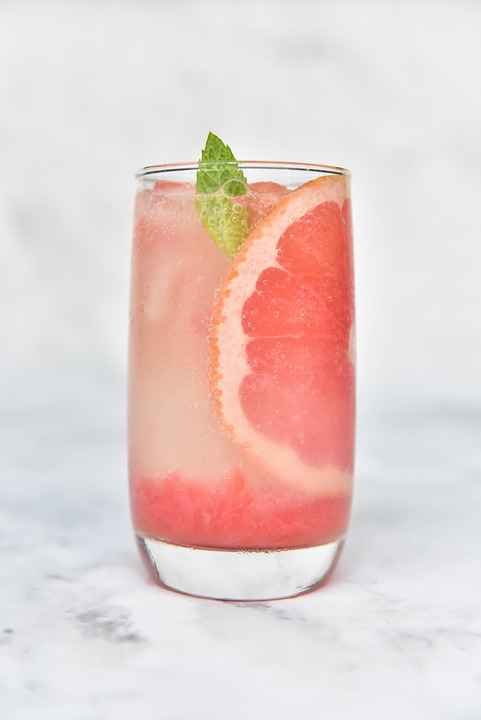Introduction
Beverage scientists play a crucial role in the development of innovative and successful drinks that appeal to consumers. One of the key challenges they face is balancing function, flavor, and format to create products that meet the needs and preferences of consumers while also being commercially viable. In this report, we will explore how beverage scientists achieve this balance by using a data-driven approach that takes into account financial considerations, industry trends, and the competitive landscape.
Understanding the Role of Beverage Scientists
Beverage scientists are responsible for developing new beverage products, improving existing formulations, and ensuring that the final products meet quality standards. They work closely with marketing teams, research and development departments, and production teams to create products that are not only delicious but also functional and appealing to consumers.
Function, Flavor, and Format
Function refers to the specific benefits or functionalities that a beverage offers to consumers. This could include energy-boosting properties, hydration, nutritional value, or health benefits. Flavor is, of course, a critical aspect of any beverage product, as consumers expect drinks to taste good and be enjoyable to consume. Format refers to the packaging, size, and presentation of the beverage, which can influence consumer perception and purchasing decisions.
Challenges in Balancing Function, Flavor, and Format
One of the main challenges that beverage scientists face is balancing function, flavor, and format without compromising on any aspect. For example, a beverage that offers health benefits may not be well-received by consumers if it does not taste good. Similarly, a delicious beverage may not be successful in the market if it is packaged in a format that is not convenient or appealing to consumers.
Data-Driven Approach to Balancing Function, Flavor, and Format
Beverage scientists use a data-driven approach to develop products that meet consumer preferences and market demands. This approach involves analyzing financial data, industry trends, consumer behavior, and competitor products to inform the development process.
Financial Considerations
Financial considerations play a significant role in the development of beverage products. Beverage scientists must take into account the cost of ingredients, production, packaging, and marketing when developing new products. They also need to consider the potential return on investment and the pricing strategy that will make the product competitive in the market.
Industry Trends and Consumer Behavior
Beverage scientists closely monitor industry trends and consumer behavior to identify opportunities for innovation and growth. They analyze data on consumer preferences, purchasing habits, and market trends to develop products that meet the changing needs of consumers. For example, the rise of health and wellness trends has led to an increase in demand for functional beverages with added benefits such as vitamins, antioxidants, and probiotics.
Competitive Landscape
Understanding the competitive landscape is essential for beverage scientists to develop products that stand out in the market. They analyze competitor products, pricing strategies, marketing tactics, and consumer feedback to identify gaps in the market and opportunities for differentiation. By leveraging data on the competitive landscape, beverage scientists can create products that offer unique value propositions and appeal to target consumers.
Case Study: Coca-Cola’s Innovation in Function, Flavor, and Format
Coca-Cola is a prime example of a company that has successfully balanced function, flavor, and format to create a diverse portfolio of beverage products. The company has invested heavily in research and development to create products that meet consumer preferences and market trends.
Financial Data
Coca-Cola’s financial data reflects its success in balancing function, flavor, and format. The company’s revenue in 2020 was $33 billion, with a net income of $8.6 billion. Coca-Cola’s diverse product portfolio includes carbonated soft drinks, juices, teas, coffees, and water, catering to a wide range of consumer preferences.
Product Innovation
Coca-Cola has introduced innovative products that appeal to consumers seeking functional beverages with added benefits. For example, the company’s Coca-Cola Zero Sugar offers the same great taste as regular Coca-Cola but with zero calories. Coca-Cola also offers a range of flavored waters, teas, and coffees to cater to diverse consumer preferences.
Packaging and Marketing
Coca-Cola pays close attention to packaging and marketing to ensure that its products are appealing to consumers. The company’s iconic red and white branding is instantly recognizable, and its marketing campaigns are designed to resonate with consumers of all ages. Coca-Cola’s diverse packaging options, including cans, bottles, and pouches, cater to different consumer preferences and occasions.
Conclusion
In conclusion, beverage scientists play a critical role in balancing function, flavor, and format to create successful beverage products. By using a data-driven approach that considers financial data, industry trends, and the competitive landscape, beverage scientists can develop products that meet consumer preferences and market demands. Companies like Coca-Cola demonstrate how innovation in function, flavor, and format can drive success in the competitive beverage industry.

